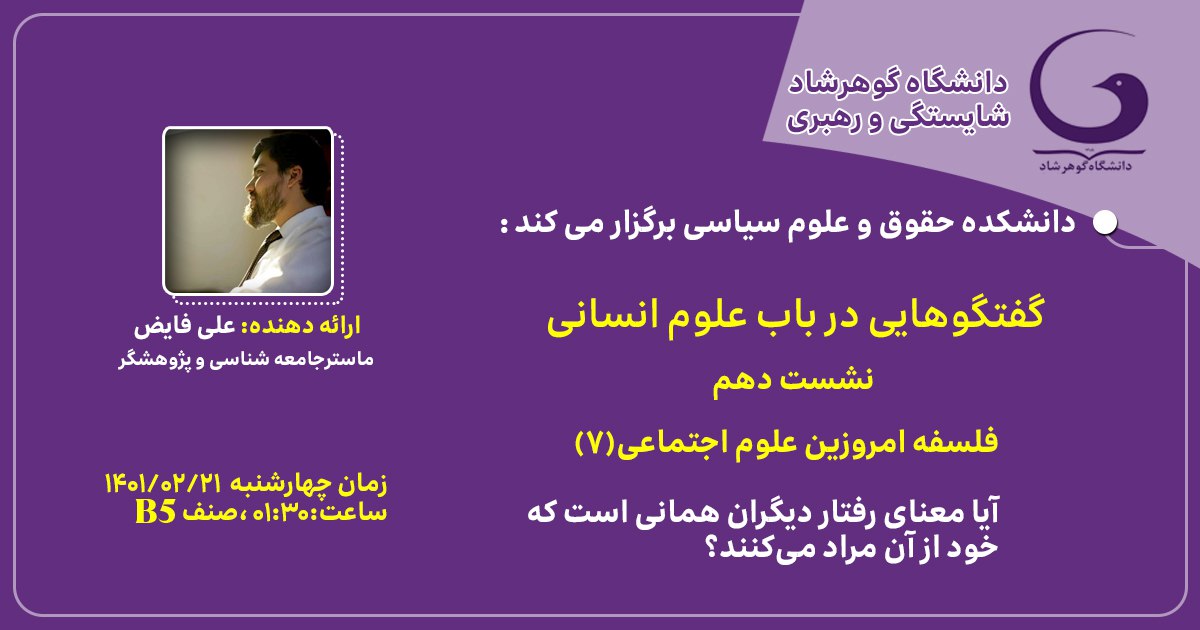In this session, Mr. Fayez Ahmadi started the discussion by summarizing the previous chapters, emphasizing that the content of the book is continuous and interconnected. He continued the discussion by questioning whether other people's behavior is what they intend. The intentionality was raised as a topic, and for example, they referred to the night of December 49 BC and mentioned that Caesar crossed the Rubicon with one of his legions. The Rubicon was a small river between Italy and a province that Caesar ruled over. What was the meaning of this action? From the perspective of cultural authenticity, questioning the meaning of others' behavior is one of the first questions that should be asked. To answer this question, we need to understand meaning. That is, when questioning what is meant by Caesar's action, what should be asked? The meaning of a text or relationship is what the agent or author had in mind when engaging in that action or producing that text or relationship. Intentionality has an explanation for the most specific form of meaning, linguistic meaning. One of the most influential accounts of intentionality can be found in linguistic theory proposed by Paul Grice. According to this theory, in order for someone to intend a certain meaning by uttering a sentence, they must have the intention to have an effect on their audience with that sentence. Mr. Fayez then referred to different meanings in language and discussed Gadamer's hermeneutics and said that interpretations are all mixed with interpretation in humanities sciences when one person interprets another person's behavior.
But in response to the question of whether behavior means what others intend, both intentionalism and Gadamerian hermeneutics want to give exclusive answers. Intentionalism gives a positive answer to this question, while Gadamerian hermeneutics gives a negative answer. However, both of these answers are simplistic. The meaning of behavior can be related to its intentionality in the past and its current significance. The best answer is both yes and no. According to one interpretation, the understanding that agents have of intentions is determinative, and according to another interpretation, it is not the intentions of agents but rather their subsequent importance and implications that are vital.
